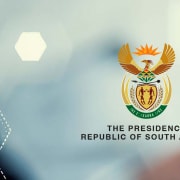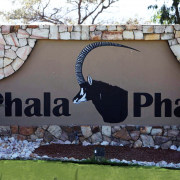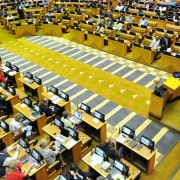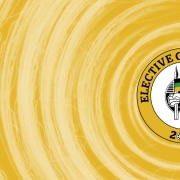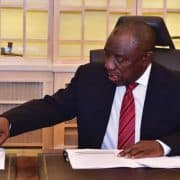|
Getting your Trinity Audio player ready...
|
Image: Flickr/GovernmentZA
By Melusi Ncala
First published on News24
Corruption is a plague that requires our collaborative, united, and purposeful efforts if it is to be dealt with decisively. The fight against graft has yielded successes and brought corruption into the mainstream discourse – but has also enabled its use as rhetoric for character assassination or a stepping-stone towards political office.
This weaponisation of corruption must be rejected outright for it is divisive and unproductive. Nevertheless, it is currently the tale of President Cyril Ramaphosa’s Phala Phala alleged criminal scandal and the manner in which members of society tend to be sucked into corruption cases as though these provide entertainment.
It looked good for a while. The incumbent made the right noises, appointed persons he believes are credible, and flexed his muscles within his own party to outmanoeuvre, for now, some prominent members who are steeped in controversies. So what troubles the public about Ramaphosa?
Is it because we know that graft is central to the abuse of human rights, jeopardises democracy, and erodes trust in state institutions? Corruption Watch’s studies have shown us that South African youth and whistle-blowers have little trust in state institutions. Significantly, the latter surveyed group indicated that the presidency is an office they do not trust with complaints of graft. Of course, this sentiment may be coincidental but perceptions do matter especially in how the problem of corruption is handled.
Ticket of renewal
Perhaps it is not so much Ramaphosa himself, but rather resentment and outrage at the levels of corruption. As some commentators point out, Ramaphosa came in on a ticket of renewal and cleaning up the rot. He postured as an ethical, knowledgeable, and wise man who was concerned about the state of affairs. At times, he cleverly centred the attainment of social justice on the eradication of graft.
But Ramaphosa is the same person who hunts and purchases wild game as a hobby despite allegations of wrongdoing going back several years. Nonetheless, because the elite saw it as a petty squabble by activists, using their social capital, the matter was brushed aside. We spent little time discussing the ethics of hunting and the institutional aspects of this seemingly archaic social practice.
Lest we forget, Ramaphosa is the same person who, as a Lonmin board member, called for ‘concomitant action’ while tensions were rising in the North-West in 2012. Alas, we witnessed a massacre in Marikana at the hands of the state in democratic South Africa. Instead of addressing the recommendation of a commission probing this shocking atrocity, elite privilege prevailed. Meaningful discussions on police reform as well as the plight of poor black people took a backseat. Consequently, the analyses of foundational shifts that need to take place to propel society forward were not mainstreamed.
Shots have been fired again, but this time Ramaphosa is in the sights of former State Security Agency director-general Arthur Fraser who, opponents argue, is doing so for factional battles within the African National Congress. Though Fraser’s criminal case may have a bearing on Ramaphosa’s future as president, are we not losing sight of the more substantive issues at play? A head of state is accused of money laundering, bribery and kidnapping – damning allegations and frightening. May law enforcement as well as the other arms of state perform their duties diligently and independently.
While that is ongoing, what will our role be as ordinary people? Will we fall into the same trap of watching politicians in a gladiatorial contest wielding corruption as a club, to emerge victorious claiming that they are saving the nation? Or will we rise to the occasion, as whistle-blowers of corruption and anti-corruption social justice activists do daily?
Nominations and elections
Amid the cacophony, we must focus on the establishment’s misalignment with our values and principles. No longer can we leave the nation’s fate to chance, led by a questionable character, because too much power is vested in the presidency. The president appoints the heads of law enforcement agencies, National Prosecuting Authority, various Chapter 9 and 10 institutions, and judiciary.
In our evaluation of the status quo, we must reconceptualise how power is distributed. We have to purposely pursue a people-centred approach that goes beyond making recommendations to persons in authority. The appointment processes of key institutions should rather be based on nominations and elections, and candidates should be eligible only once they have been vetted and have a clean corruption and criminal record.
This call for a constitutional amendment is borne out of the understanding that corruption is primarily systemic. It cloaks itself with the veil of boardrooms, networks, and cultural norms, thus appearing legitimised. It pervades businesses, political parties, and governments. The righteous and noble are apparently few among us, and our attempts at finding suitable persons to lead may be arduous.
In the current order, we are treating a potentially fatal wound with a bandage, and it is a matter of time before we bleed out. That bandage lulled many of us, like children, into believing that all will be well. But the bandage is soiled and poses a threat if not removed.
There is work to be done and it is to be done by us as the people of this land. We cannot envision a corrupt-free society without first addressing systemic weaknesses. That in itself will be a war of many battles, but as long as there are brave whistle-blowers we will continue to make positive gains.
Melusi Ncala is a senior researcher at Corruption Watch.

